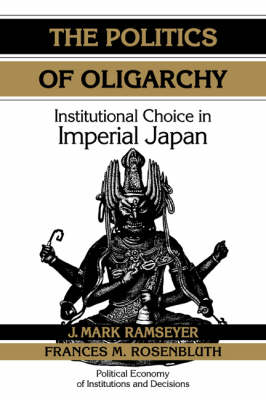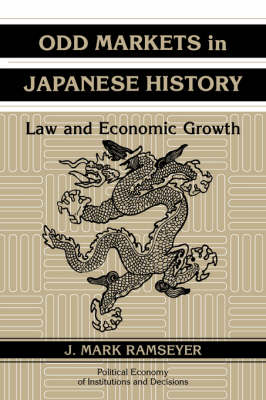Political Economy of Institutions and Decisions
2 total works
In the latter-half of the nineteenth century and the first half of the twentieth century, Japan underwent two major shifts in political control. In the 1910s, the power of the oligarchy was eclipsed by that of a larger group of professional politicians; in the 1930s, the focus of power shifted again, this time to a set of independent military leaders. In this book, Ramseyer and Rosenbluth examine a key question of modern Japanese politics: why the Meiji oligarchs were unable to design institutions capable of protecting their power. The authors question why the oligarchs chose the political institutions they did, and what the consequences of those choices were for Japan's political competition, economic development, and diplomatic relations. Indeed, they argue, it was the oligarchs' very inability to agree among themselves on how to rule that prompted them to cut the military loose from civilian control - a decision that was to have disastrous consequences not only for Japan but for the rest of the world.
Employing a rational-choice approach, Professor Ramseyer studies the impact of Japanese law on economic growth in Japan. Toward that end, the author investigates the way law governed various markets and the way that people negotiated contracts within those markets. For much of the period at stake, the Japanese government was an oligarchy rather than a democracy; the judges operated a civil rather than common law regime; the economy grew modestly but erratically; and social customs changed rapidly and radically. As a result, this study applies an economic logic, but to markets in a vastly different world, in a different historical period, and with a different political regime and legal system. Findings reveal that the legal system generally promoted mutually advantageous deals, and that people generally negotiated in ways that shrewdly promoted their private best interests. Whether in the markets for indentured servants, prostitutes, or marriage partners, Odd Markets in Japanese History reports little evidence of either age- or gender- related exploitation.

